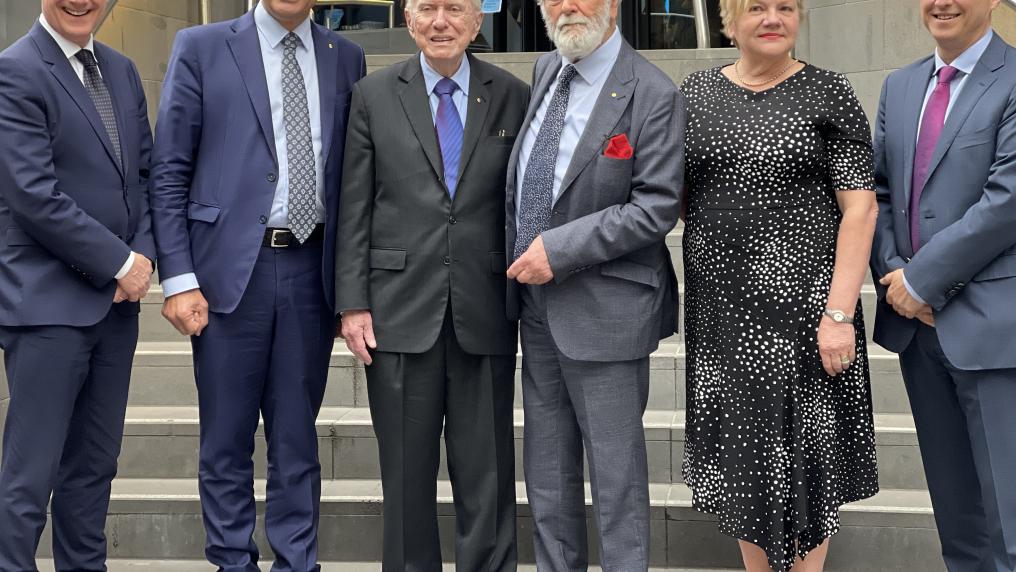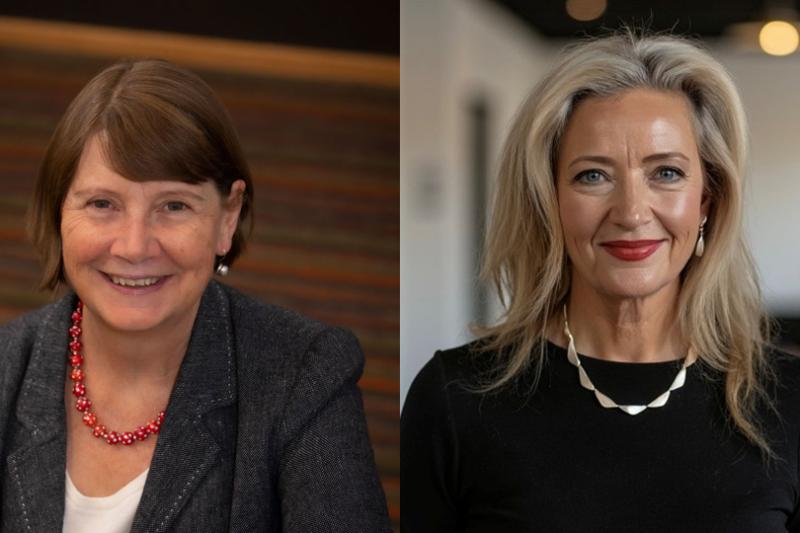Justice for all

Victoria University’s 11th Michael Kirby Justice Oration 2022 for the College of Law and Justice took place in front of a large gathering at the new VU City Tower in the heart of Melbourne’s historic legal precinct.
VU’s Vice-Chancellor Professor Adam Shoemaker, Chancellor The Honourable Steve Bracks, Deputy Vice-Chancellor John Germov, Dean of College of Law and Justice Professor Lidia Xynas, students and special guests were privileged to hear an engaging oration by renowned lawyer, social activist, writer, teacher, and former politician The Honourable Dr Barry Jones AC, FAA.
Dr Jones spent the first part of his oration highlighting the work of The Hon. Michael Kirby AC. A friend for more than four decades, Dr Jones said Kirby was a great humanitarian: generous, selfless and with a tireless commitment to justice. Dr Jones added that Kirby’s reports for the United Nations on human rights abuse in Cambodia and North Korea were outstanding. “He also made an important international contribution by tackling human issues that arose from the HIV/AIDS pandemic.”
Both Dr Jones and Kirby have dedicated their careers to abolishing the death penalty and were integral to Australia’s decision to prohibit the death penalty in 1985.
Dr Jones noted that 2022 marks the centenary of the abolition of the death penalty in Queensland - not only the first Australian state to do so, but the first jurisdiction in the then British Empire. For many Australians, the name Ronald Ryan is synonymous with a raging debate that forced the nation to look inward and pose the question: are we a compassionate society? On the 21 February 1977, Ryan was to be the last of 2140 people to be executed in Australia.
A year after Ryan’s execution took place at Melbourne’s Pentridge Prison, Dr Jones published The Penalty is Death: State Power, Law and Justice, a collection of essays examining a range of historical and contemporary sources, including “some of the most significant voices in the international history of debates about capital punishment from the eighteenth century to the present day. It contains a historical overview of the arguments for and against capital punishment; legal, political, and philosophical analysis and commentary; and firsthand accounts of the reality of executions and their aftermaths.” A recently updated edition published by Scribe includes new information focusing on North America’s continued support for capital punishment.
Dr Jones said “capital punishment is a central metaphor about the problems of state power and the fallibility of human judgement, flawed and rigid institutions, and the danger of making decisions that are irreversible.” He also sited Italian philosopher Cesare Beccaria, calling him astonishingly prescient. His treatise On Crimes and Punishment posed the questions: What is the aim? Who does it benefit? What is to be learnt?
In closing, Dr Jones called for Australians to be more active, pointing out that many countries including China, Russia, Iran and Indonesia continue to engage in capital punishment. “Change will happen.”
Established in 2010, the annual Michael Kirby Justice Oration provides a platform for leaders within our community to share their experiences, deep understanding, knowledge and reflections on issues of justice.



